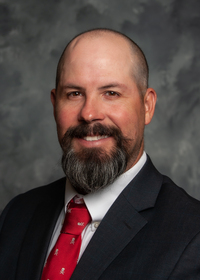Information Possibly Outdated
The information presented on this page was originally released on August 25, 2003. It may not be outdated, but please search our site for more current information. If you plan to quote or reference this information in a publication, please check with the Extension specialist or author before proceeding.
Cotton growers support boll weevil referendum
MISSISSIPPI STATE -- It took two referendums, but the majority of cotton growers in the north Mississippi Delta finally received enough votes to continue in regionwide efforts to eradicate boll weevils in their fields.
On Aug. 22, Farm Service Agency offices counted cotton growers' ballots for the second time in just over two months. While the June referendum yielded a majority in favor, it took this August vote to meet the required 66 and two-thirds percent majority to place north Delta counties into a 10-year maintenance program after the five-year eradication effort concludes.
Bolivar, Coahoma and Washington counties (Region 1B) gave the maintenance program a 69 percent favorable vote. Leflore, Quitman, Sunflower, Tunica and west Tallahatchie counties (Region 1A) supported the program with 68 percent of the vote. The unofficial results included a total of 1,576 ballots.
"We have been pleased with the success of the eradication effort, and we firmly believe the maintenance program will be the key to keeping boll weevils out of the picture for future cotton-growing generations," said John Swayze, president of the MBWMC board.
Growers agreed on annual assessments of not more than $12 per acre. Swayze, a cotton grower in Yazoo County, said program managers hope actual assessments will be between $8 and $10 for the next couple of years, then drop even lower to $6 to $8 per acre.
Will McCarty, cotton specialist with the Mississippi State University Extension Service, said continuing the program is essential for Mississippi to remain competitive in the cotton industry.
"This vote ensures that Mississippi growers will be able to fully utilize future technologies available for cotton production," McCarty said. "At this point, the program practically guarantees zero yield losses to boll weevils, and growers will never have to worry about control or losses again as long as eradication is maintained."
The current eradication program started in Mississippi's eastern counties in 1997 and progressed annually westward. The north Delta regions voted to join the five-year program in 1999.


